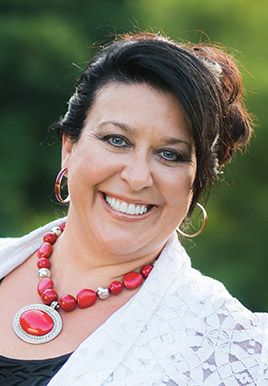For Dentists, Complimenting Staff is a Simple, But Important Skill
Dental business coach, Laci L. Phillips, says little compliments can make a major difference in how a practice functions.

“If your team thinks that you don’t care how they treat people or how they do their job they won’t do it well." - Laci L. Phillips
As a dental business coach, Laci L. Phillips can tell almost as soon as she steps foot in a practice whether the dentist and staff are a high-functioning team, or a stressed-out collection of people barely getting by.
There are many reasons why a staff might not be meeting its potential, but one of the reasons is deceptively simple: a lack of regular recognition for high performance.
In short, Phillips said, dentists need to do a better job of complimenting their staffs.
“I think dentists feel like it’s all monetary and I think a lot of dentists really truly don’t know how to give compliment,” she said.
Phillips, co-founder of Practice Dynamics, said she has studied the personality types of dentists, and more often than not a certain type of personality emerges.
“And that type is someone who doesn’t necessarily need compliments, so they don’t give compliments,” she said. “And they’re certainly not going to give one if someone doesn’t deserve it.”
Where to begin?
“I think first and foremost it has to start form a genuine place,” Phillips said.
THE IMPORTANCE OF COMPLIMENTS
Phillips said compliments are most valuable when they’re true and when they’re genuine. It’s not a numbers game. “If they just walk through the office and systematically say, ‘Hey thanks for coming to work today,’ it’s not as sincere and it’s not as meaningful,” she said.
The first step to genuine compliments is trying to notice the things your staff is doing well. Notice when the chairside assistant hands you everything without even needing to be asked. Notice when a hygienist gives a particularly amazing handoff. Notice when the business office is able to collect the entire fee up front.
“You have to physically and mentally start noticing things,” she said.
Once a dentist has trained her mind to notice, she’ll be better able to turn those observations into genuine, meaningful compliments.
Another key is to focus on gratitude, she said. This, too, can take practice. Some of Phillips’ clients have opted to put a sticky note on their desk to remind themselves to find three things each day for which they’re thankful. Others put a photo or sentimental object on their desk to remind them of all they are thankful for.
Remembering to be grateful can translate into an easier time remembering to compliment and thank staff.
BE A LEADER
Phillips also said dentists need to think of themselves not only as “bosses” but also as leaders, people invested in their staff, not just the bottom line.
“A boss is going to tell you what you have to do,” she said. “A leader is going to ask you what you want to accomplish. Who do you want to be? A leader makes you feel like you’re going to be a better person. A boss just dictates, and all they care about is the outcome.”
And when it comes to being a leader, Phillips said, the job is never done. Once a dentist starts focusing on helping his employees grow, he also needs to remember to continue to improve as a leader.
“I think the greatest leaders are the constant learners,” she said. “You’re constantly educating yourself.”
Phillips said regular compliments can make a major difference in the atmosphere of a workplace, something patients will pick up on. And if a dentist fails to signal appreciation for good work, they may find they are unintentionally sending a different signal.
“If your team thinks that you don’t care how they treat people or how they do their job they won’t do it well,” she said.
ACTIVA BioACTIVE Bulk Flow Marks Pulpdent’s First Major Product Release in 4 Years
December 12th 2024Next-generation bulk-fill dental restorative raises the standard of care for bulk-fill procedures by providing natural remineralization support, while also overcoming current bulk-fill limitations.